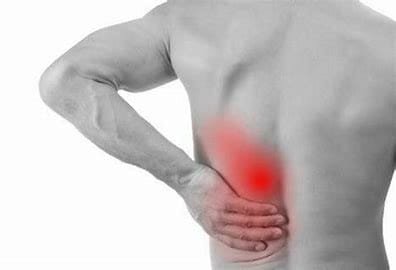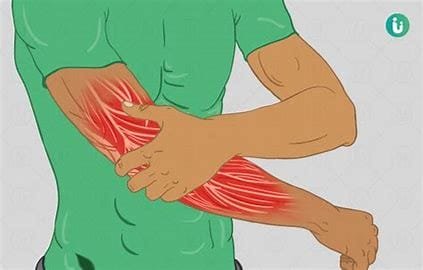Introduction Muscle weakness is the medical term for myasthenia, the medical condition where muscles lack the strength to perform movements as expected. This condition can be both localized and generalized. In a localized condition, it affects particular muscle groups, whereas generalized involves larger portions of the body. When caused, muscle weakness may either be temporary or chronic. It often ensues from muscle, nerve, or metabolic imbalances that cause deterioration in normal muscular function. However, knowledge of its causes, disadvantages, and possible treatments can help in effective management of muscle weakness.

Causes of muscle weakness
Various factors may be responsible for muscle weakness, and these can be broadly classified into three areas: neurological, muscular, and systemic.
Neurological Causes
Nerve Damage: Diseases such as peripheral neuropathies affect the loss of peripheral nerves, which causes weakened muscles in those areas.
Strokes: A stroke can destroy the part of the brain responsible for sending signals to muscles, and a person will feel weakness on one side of the body.
Multiple Sclerosis: MS refers to progressive damage where the immune system attacks the protective sheath of nerves, causing muscle weaknesses, improper coordination, and mobility problems.
Spinal Cord Injury: Trauma to the spinal cord can tear the communication between the brain and muscles, leading to muscle weakness or paralysis.
Amyotrophic Lateral Sclerosis (ALS): ALS causes progressive damage to the motor neurons responsible for the movement of voluntary muscles of the body, thereby causing widespread weakening of the muscles.
Muscular Causes
Muscular Dystrophy: This is a group of genetic disorders characterized by progressive damage to the muscle fibers, which leads to gradual weakening of the muscles.
Inflammatory Myopathies: The conditions of polymyositis or dermatomyositis induce chronic inflammation in the muscles, which gradually become weak.
Rhabdomyolysis: Muscles undergo a breakdown through trauma, overexertion, or toxins to cause extreme muscle weakness.
Systemic Causes
Metabolic Imbalances: Electrolyte imbalances, such as hypokalemia or low calcium, can impair the muscles’ contraction process and weaken muscles.

Endocrine Disorders: Conditions related to endocrinological disorders can cause wasting and weakening of the muscles, such as hypothyroidism or Cushing’s syndrome.
Infections: Muscle weakness may be a consequence of a systemic inflammatory response and may be caused by diseases such as Lyme disease or viral infections.
Medications: Some medications provoke progressively worsening muscle weakness. Statins, prescribed for cholesterol reduction, are examples; corticosteroids, for inflammation reduction, are also some examples.
Aging: Sarcopenia is the term for progressive muscle loss with age, resulting in diminished muscle strength over the course of years of life.
Positive Consequences of Muscle Weakness
Muscle weakness can cause very severe physical, emotional, as well as social implications.
Reduced mobility and functionality: People suffering from muscle weakness find difficulties in basic activities such as walking, lifting things, or remaining upright. This tends to make elderly people dependent or even lose their autonomy.
Greater Probability of Falls and Injuries Muscles that are weak are weaker to keep the body erect and therefore more prone to falling. Broken bones as a result of such falls, in particular, take much longer to heal and lead to further muscle wasting.
Fatigue: Muscle weakness causes fatigue due to chronic problems. Even everyday work appears to require an increased amount of effort and energy, thus leaving them drained all the time.
Pain and discomfort: Every part of the body might take over for the loss that occurs due to weakened muscles, as it can be accompanied by muscle strain and joint pain. For example, a serious weakness in the back muscles may cause poor posture and therefore subsequent backache.
Psychological Effects: Chronic muscle weakness tends to develop frustration, anxiety, and depression because of the loss of physical ability. Loss of the capacity to achieve or accomplish everyday activities can affect quality of life greatly.
Treatment of muscle weakness
Treatment of muscle weakness depends upon the etiology of the situation. It requires a combination of treatments, including medical treatments, physical therapy, lifestyle changes, and supportive measures to manage the condition.
Medicaments
Anti-inflammatory Drugs: For inflammatory diseases, for example, polymyositis, the doctor might give steroids to control inflammation in the muscles and regain strength.
Immunosuppressants: If one is suffering from an autoimmune illness, such as myasthenia gravis or multiple sclerosis, certain drugs may suppress immunity, which could counterattack at the muscles or nerves.
Antibiotics/Antivirals: Should an infection be a cause for weakness in muscles, the infection should be controlled using proper medications.
Hormone Replacement Therapy: In patients with endocrine-muscle weakness, hormone replacement therapy could also be administered to restore normal functioning of muscles, particularly in hypothyroidism.
Physical Therapy
Strengthening Exercises: A physical therapist creates an exercise program designed to strengthen weak muscles and increase the available range of movement. For instance, weight-bearing exercise is encouraged to counteract sarcopenia.
Stretching and Flexibility Training: Stretching helps to maintain flexibility and prevent contractures, which are shortened muscles or tendons, as is very common in individuals with chronic muscle weakness.
Electrical Stimulation: TENS or other forms of electrical stimulation could also be utilized in an attempt to maintain muscle contractions and tone.
Lifestyle Changes
Healthy Nutrition: The diet should contain proteins, vitamins, and minerals for muscle health. In particular, an adequate potassium level, as well as adequate magnesium and calcium stores, assist in the contraction and strength of muscles.
Hydration: Hydration is also a very important step in muscle functions; an unhydrated body will only exacerbate cramps and weakness of muscles.
Rest and Recovery: Since muscles tend to degenerate if overstreched or overworked, proper rest, as well as avoiding the activities that may strain such muscles, are highly relevant.
Assistive Devices
Walking Aids: Various devices that include canes, walkers, and even a brace in order to offer support for an individual suffering from muscle weakness, thus preventing falls and thus enhancing mobility
Adaptive Equipment: Numerous special equipment, including grab bars in a bathroom or modified utensils, assists a person who has strong muscle weakness to lead his independent life and move about with much ease.
Conclusion

Historically, the term given in hallowed medical texts to muscle weakness is the affliction that can severely alter a person’s day-to-day activities; the cause and early signs can help individuals work through effective management. A perfect blend of medication, physical therapy, and lifestyle changes forms the basis for treating muscle weakness. Most people can recover muscle strength by proper care enhancement to the quality of their lives. Therefore, with proper treatment of the underlying cause, long-term management and prevention of further complications are of utmost importance.



